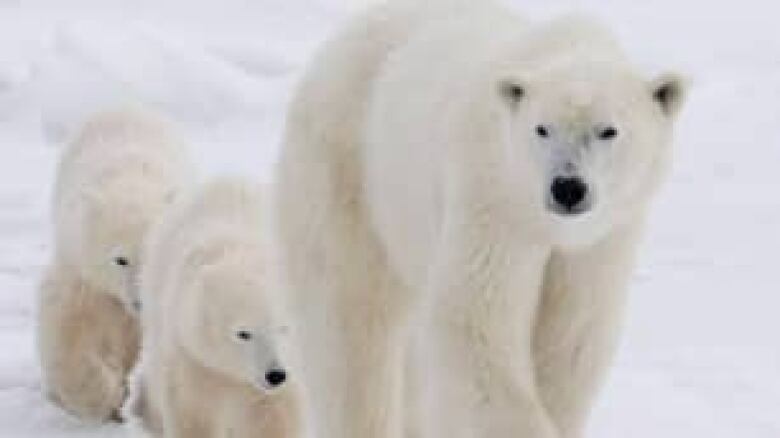Polar bears likely to have tough year: expert
Scientist says thin ice this season could have long-term impact
One of Canada's top polar bear scientists says the poor ice conditions in the eastern Arctic this year could have a devastating impact on the animals.

Andrew Derocher, a professor at the University of Alberta, says the above-average temperatures in many places and the thin, late sea icewill keep polar bears from finding potential mates as well as seals.
"This, of course, has long-term ramifications on the health of the population because the bears don't have good access to their primary food sources, which in this area is ring seals, bearded seals and of course harp seals in some areas as well," he said.
Derocheris worriedabout what the ice conditions will be like in April or May when seals begin to give birth to pups and the bears put on most of their body weight.
Just one year of bad ice can have a big impact on bears, especially nursing mothers and bears without much hunting experience, he said.
Hunters get first-hand look
Kimmirut resident Saqiqtaq Temela said there's hardly been any hunting on sea ice so far, with two people on snowmobiles heading out for the first time on Friday.
"It's starting to form," he said. "However it's still delicate, I believe, and thin."
Derocher says hunters can help monitor how the ice is affecting wildlife, since they're seeing the habitat first-hand.
Hesaid the animals can get by without iceby eating carcasses on land or those that have washed ashore, but it depends on how much body fat they were able to build up during the previous winter.
"So longer term, the real concern is if the ice doesn't come back and form enough, the bears won't get enough food and of course, then we're going to start to see reductions in reproduction and survival,"Derocher said.
Research from 2007 estimates that only about one-third of the world's 22,000 polar bears will remain by mid-century if the dramatic Arctic sea ice decline continues.












_(720p).jpg)


 OFFICIAL HD MUSIC VIDEO.jpg)
.jpg)



























































































